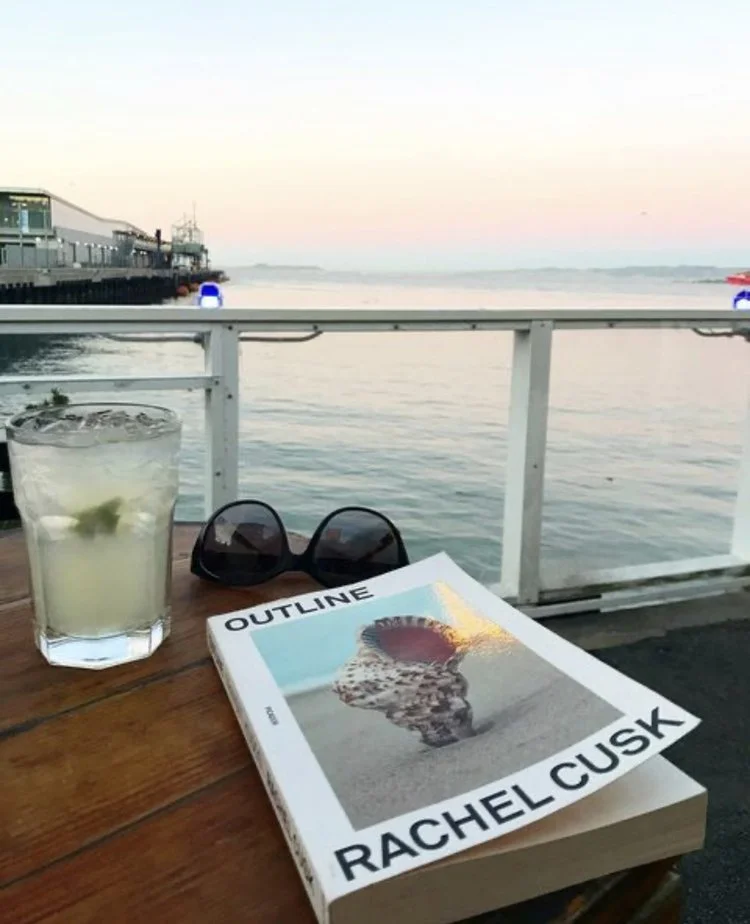Book Review: ‘Outline’ And The Lost Art of Listening
Title: Outline
Author: Rachel Cusk
Genre: Fiction
Publisher: Picador (Pan Macmillan)
Year Published: 2014
Pages: 256
Original Language: English
POV: First person
Diversity Factor: Female narrator. Set in Athens.
Feeling While Reading:
It feels like floating in the ocean on an overcast day. Eyes closed. Half-processing the pieces of conversation that you can hear coming from the shore.
Synopsis:
The book takes place over the summer as the protagonist, an unnamed female novelist, goes to Athens after her divorce to teach a creative writing course. The book is written in the form of ten different conversations that separate individuals have with the narrator.
Review:
A creative writing professor once told me that to be a good writer you must first be a good listener. There is no other book I have read in recent memory that demonstrates the execution of this advice as skillfully as Outline.
At it’s surface, the story is simple: a recently divorced writer goes to Athens to teach a class over the summer. There are no spoilers in this review because the book has no real “plot.” The narrative is structured through different conversations the protagonist has with a billionaire, a stranger on a plane, other writers, some of her students, etc. I say “conversations” but really it’s the characters talking at the protagonist for paragraphs on end while she reveals almost nothing about herself.
Before writing this review I was trying to figure out just why I found the format of long monologues and blunt, focused descriptions such a pleasure to read. The reason, I’ve realized, is that in our western, tech-filled, twenty-first century lives these kind of long, drawn out interactions with no real “point” or “aim” have become increasingly rare.
Many of us walk down the street with our earphones in and our eyes looking down at our screens. We distract ourselves while we wait in lines at the bank or the supermarket. We wake up with our phones. We go to bed with our phones. We scroll and scroll and scroll. Even when we are with each other, reality is observed through the prism of a digital screen.
This book was published in 2014 and yet its form and content makes it feel like a modern day relic. There are no mentions of social media and the only technology we see is a phone which the narrator uses to communicate with a couple of people (by calling, rarely texting). In the absence of technological communication what are we left with? The sounds of the words of others as well as that of our own thoughts… and the ability to take deeper notice of the real world around us.
There is much that a reader can take away from this book; one, at the very least, is a profound appreciation for the literary talents of its author. In my case, Outline reminded me of the importance of listening with intention and taking note of even the most seemingly insignificant details of day-to-day life. This is especially significant if you are someone pursuing a creative ambition because, just as Susan Sontag once said, “A writer, I think, is someone who pays attention to the world.”
And Rachel Cusk has shown us that she is nothing if not a writer.
Quotes:
“…it could never be resolved, no so long as the aim was to establish the truth, for there was no single truth any more, that was the point. There was no longer a shared vision. A shared reality even. Each of them saw things now solely from his own perspective: there was only point of view.”
“That time spent swimming in the pool beneath the waterfall belongs nowhere: it is part of no sequence of events, it is only itself, in a way that nothing in our life before as a family was ever itself, because it was always leading to the next thing and the next, was always contributing to our story of who we were.”
“I had come to believe more and more in the virtues of passivity and of living a life as unmarked by self-will as possible. One could almost make anything happen, if one tried hard enough, but the trying— it seemed to me— was almost always a sign that one was crossing the currents, was forcing events into a direction they did not naturally want to go…”
Read This Book If You Like:
Film: Before Sunrise
Richard Linklater’s script, like Outline, focuses more on dialogue over plot/action and how the ways we communicate with one another reveal different facets of who we really are.
TV: Fleabag
Both Fleabag and Outline have unnamed British female protagonists who are trying to chart their way in the world after going through traumatic experiences. Fleabag as a character is much more humorous and “filled in” than Outline‘s protagonist.
Book: TBD
[I haven’t read any book like this one, but as soon as I think of something I will edit this post and add it.]
